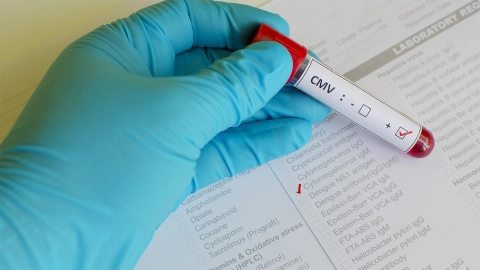ICD-Code B25.2: Cytomegaloviral pancreatiti
You have been infected with specific viruses. This has inflamed your pancreas.
There are many different types of viruses. You have been infected with the cytomegalovirus. This virus is usually transmitted by saliva and, less frequently, by blood or through sex.
When someone is infected by this virus, they often have few symptoms or none at all. However, in some cases the virus can make a person seriously ill. This happens when the defense system is weak, for example. Some of the virus remains in the body throughout the person’s life so it can cause illness later, too.
The pancreas is tucked behind the stomach in the upper abdomen. The pancreas produces messenger substances. The messenger substances control the sugar level in the blood. The pancreas also produces a fluid that is released into the intestines. This fluid contains substances that are important for the digestion of fats, proteins and sugars. When the pancreas is inflamed, you may have pain in the upper stomach, for example. Sometimes you may feel nauseated or feel like you have to vomit.
Additional indicator
On medical documents, the ICD code is often appended by letters that indicate the diagnostic certainty or the affected side of the body.
- G: Confirmed diagnosis
- V: Tentative diagnosis
- Z: Condition after
- A: Excluded diagnosis
- L: Left
- R: Right
- B: Both sides
Further information
Source
Provided by the non-profit organization “Was hab’ ich?” gemeinnützige GmbH on behalf of the Federal Ministry of Health (BMG).

